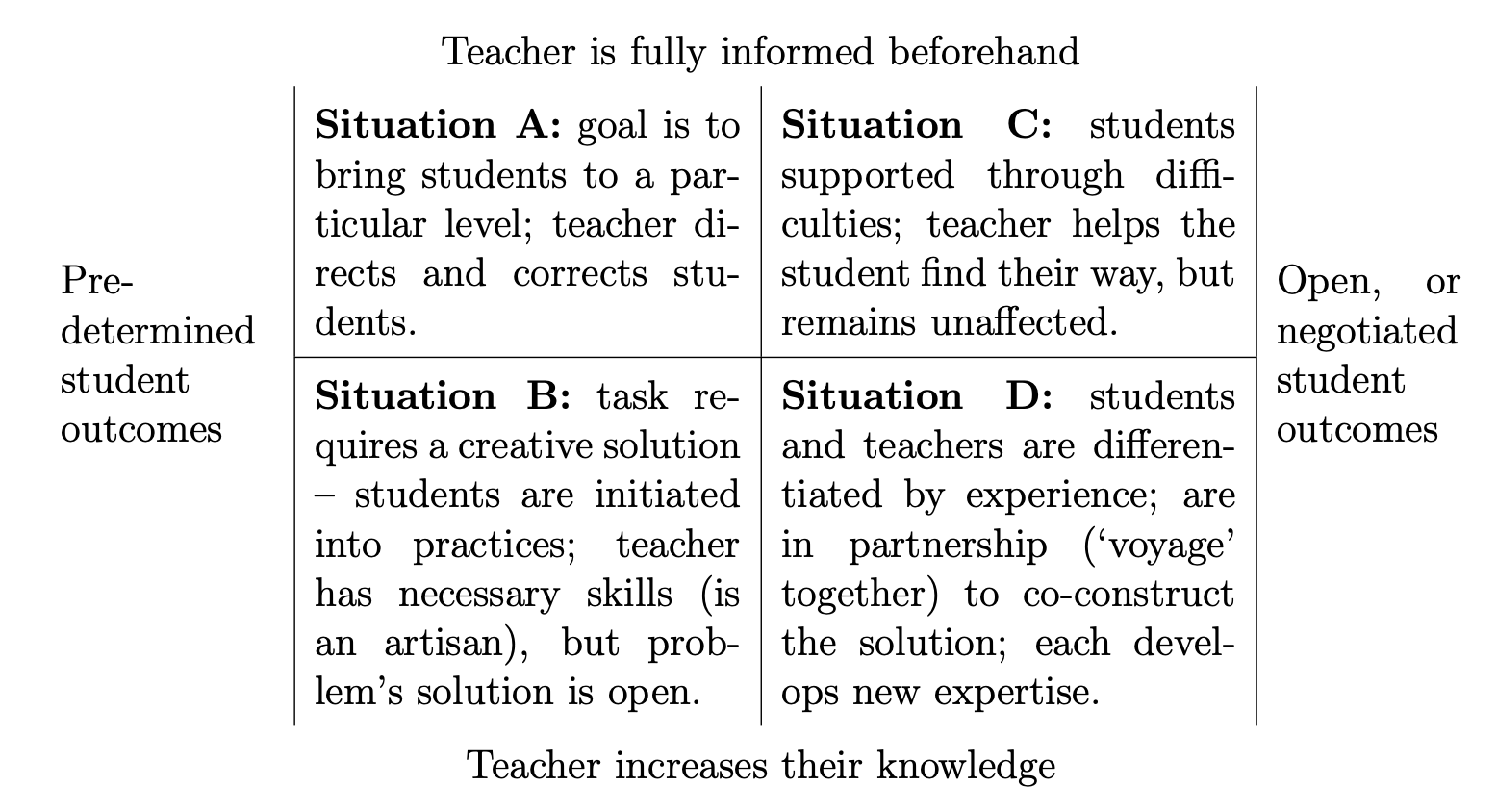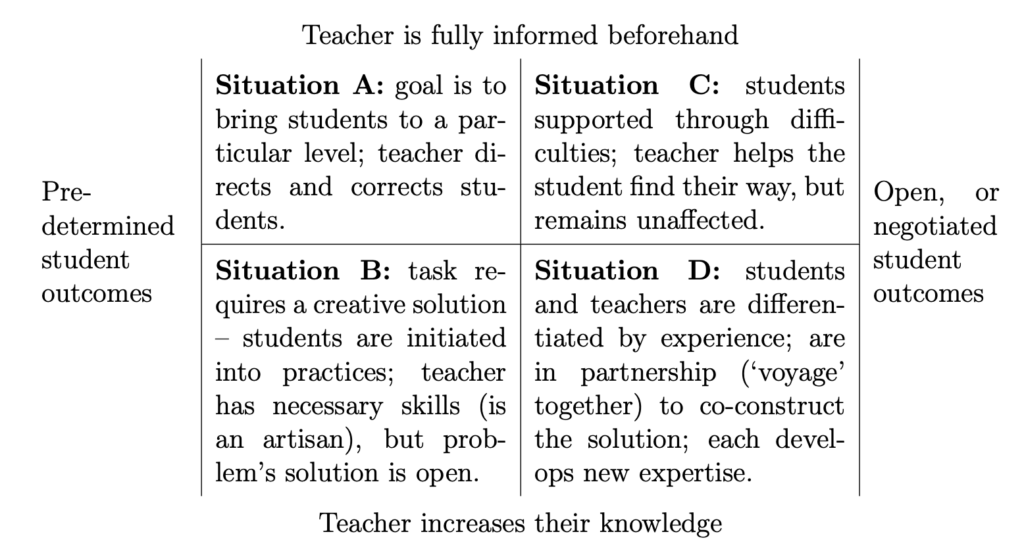
“Supporting students in higher education: proposal for a theoretical framework” Kirsty Dunnett summarizes De Ketele (2014)
Who are you travelling with? A guest post by Kirsty Dunnett.
A summary and some thoughts on:
Supporting students in higher education: proposal for a theoretical framework
By J.-M. De Ketele (Université de Louvain, Belgium)
Over a decade ago, I made a very deliberate choice to try to not completely forget all the French I’d learnt at school. The first time I really made use of this in a professional context, I found this paper (‘L’accompagnement des étudiants dans l’enseignement supérieur: une tentative de modélisation’ [1]) by putting ‘étudiants comme partenaires’ (literally ‘students as partners’) into Google Scholar while completely failing to sleep one night. Eighteen months later, and I keep coming back to it, not only in relation to Students as Partners and Active Student Participation that are central and important concepts with which I should not ignore in developing as a researcher in geosciences education associated with iEarth, but also in other contexts, such as doctoral supervision. For me, it is a stark reminder of what can be missed in an English-dominant academia, and the limits that any given language can impose on one’s thinking. I thank Mirjam for letting me post this short summary of what I take to be the key elements of the model on her blog.
The paper takes the French verb ‘accompagner’ — to guide, to walk beside and share bread for a fixed period of time — and various noun and reflexive forms (including: l’accompagnement, accompagnateur, s’accompagner), and, from a semantic basis, examines different types of ‘teacher’-‘student’ relationships along two axes.
Considering the ‘accompagnateur’ and different titles that individuals assigned to such a rôle may hold in education: tutor, mentor, coach, supervisor, counsellor, director, etc., there are three possible approaches: assume equivalence; define exactly as referring to a single concept; consider that different levels of support can be realised and that these are relevant in different contexts. The last approach is that followed in the paper and is in contrast to attempts to define ‘accompagnement’ (or almost any practice that does not rely on or assume information transmission as the principal — read only — goal of teaching) as an unambiguous concept. To reiterate: ‘L’accompagnement’ is treated as a concept with multiple possible meanings and interpretations that depend on the context in which it is considered; thus it covers different understandings and practices of particular instances.
Despite its multitude of meanings, different realisations of ‘accompagnement’ can be assigned into one of four broad categories according to two axes. The first is the goal of the learning experience, the ‘Référential’, whether it is fixed (pre-determined, inflexible), or open, something that will depend on each student’s needs, the means by which those needs were met, and the interaction between the teacher and the student. The second axis refers to the teacher’s perspective, whether they are already fully aware of what the students should (or may) learn, master or achieve, or whether the teacher develops their own knowledge and even skills through providing the educative experience. This is summarised in the table below.

Model of teacher-student roles and interactions with differing rôles of and relationships between ‘l’accompagnateur’ (the teacher) and ‘l’accompagné(e)’ (the student).
As well as providing a theoretical framework within which a wide range of pedagogical practices and learning activities can be understood, this view of ‘accompagnement’ works well with the concepts of ‘life-long learning’ and that professional knowledge and professionalism are always developing. An important aspect captured by this model is that the ‘teacher’, the guide (‘l’accompagnateur(e)’) develops as well as the ‘student’ (‘l’accompané(e)’).
The ambiguity of a concept is common to discussions of ‘Students as Partners’ [2]. However, by starting from an abstract point and focussing on developing an understanding and model of the available positions, the paper has the strength of establishing a theoretical perspective that can provide structuring for developmental efforts related to ‘Students as Partners’ paradigms.
References:
[1] J.-M. De Ketele. L’accompagnement des étudiants dans l’enseignement supérieur : une tentative de modélisation [Supporting students in higher education: proposal for a theoretical framework]. Recherche et formation [En ligne], 77, 2014. doi: 10.4000/rechercheformation.2321.
[2] A. Cook-Sather, K. E. Matthews, A. Ntem, and S. Leathwick. What we talk about when we talk about students as partners. International Journal for Students as Partners, 2(2), 2018. doi: 10.15173/ijsap.v2i2.3790.
serine says:
Nice article tanks.